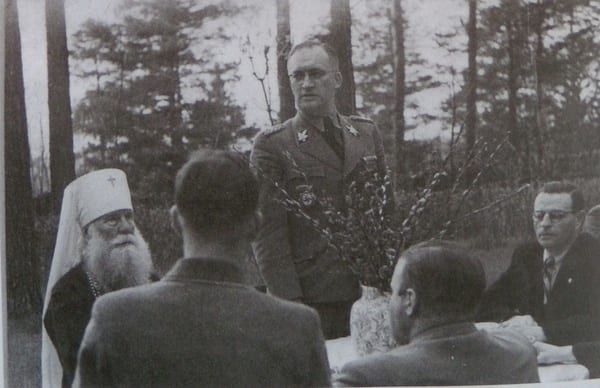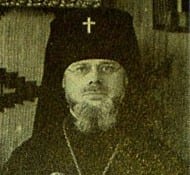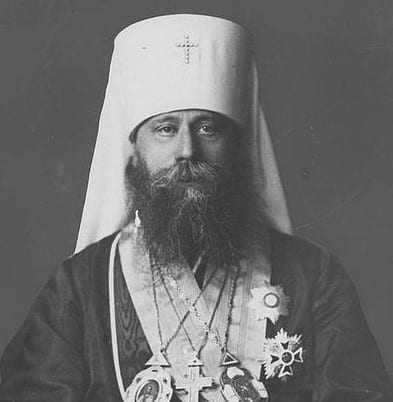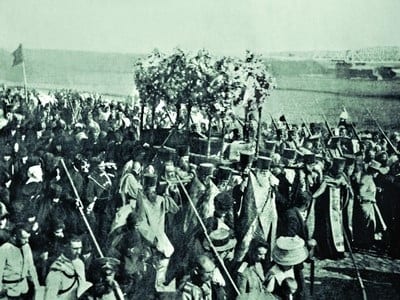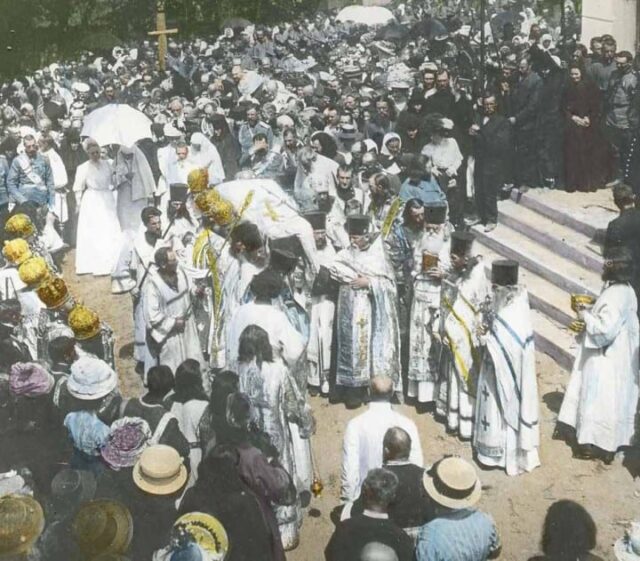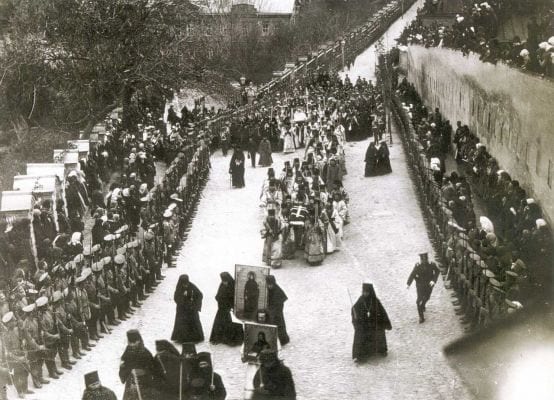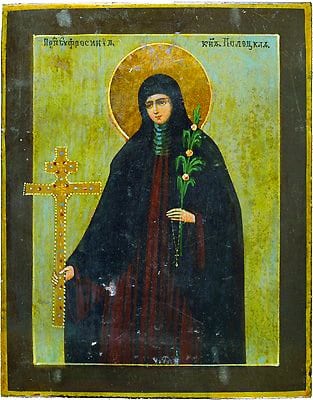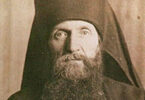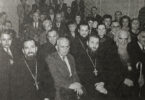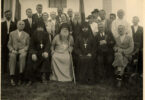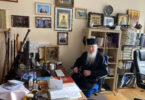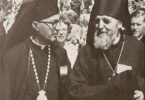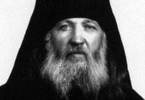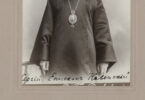Some sources claim that Metropolitan Panteleimon himself never joined the ROCOR, which these sources refer to as the “Karlovtsy orientation,” but that, “until his death, he remained faithful to the Russian Orthodox Church.” [1]http://world-war.ru/ukreplenie-pravoslavnoj-cerkvi-v-belorussii/ Joining the ROCOR and remaining faithful to the Russian Orthodox Church are not, however, mutually exclusive deeds. Unfortunately many sources on Church History coming from Russia, even today, continue to berate the “Karlovtsy orientation,” as well as denying the membership of certain hierarchs in the ROCOR, among other “errors” of fact.
Also, it seems only sources that deny that Metropolitan Panteleimon joined the ROCOR include an episode that claims that when the train leaving Byelorussia passed through Slonim, the nearly 80 year old Metropolitan Panteleimon made an attempt to escape from the train, so he could return to Zhirovitsky Monastery and wait for Soviet troops, but the German guards forced him to “once again sit in the car,” and proceed west … [2]ibid.
Perhaps the best evidence concerning whether Metropolitan Panteleimon joined the ROCOR or not is the following excerpt from the minutes of the 1950 Council of Bishops of the ROCOR: On 16/29 Dec 1950, discussing the composition of the Synod of Bishops, Bishop Gregory (Borishkevich, one of the Byelorussian Bishops to join the ROCOR in 1946), “recalls that the head of the Byelorussian Church, Metropolitan Panteleimon, when joining, with the Byelorussian Hierarchs, in the ROCOR Council of Bishops [that is, as members of the ROCOR], Metropolitan Panteleimon had been granted the right to be a permanent member of the Synod of Bishops of the ROCOR.” Metropolitan Anastassy explained that since the Synod headquarters were now in the US, and Synod meetings would be in the US, it would be difficult for Metropolitan Panteleimon to travel to the US for the meetings, as he lived in Germany. Metropolitan Anastassy went on to say that it would be perfectly acceptable for Metropolitan Panteleimon to name any Bishop of his choosing residing in America as his personal representative on the Synod. It is apparent that if Metropolitan Panteleimon had, indeed, refused to join ROCOR, the Council of Bishops would most certainly have had knowledge of that in 1946; as late as 29 Dec 1950, when these remarks were made, there could have been absolutely no doubt of Metropolitan Panteleimon’s status concerning the ROCOR. Also, if Metropolitan Panteleimon had adhered to the Moscow Patriarchate in the emigration, he certainly would not have been offered to have a personal representative sit on the Synod of Bishops of the ROCOR. [3]Minutes of the 1950 Council of Bishops of the Russian Orthodox Church Outside of Russia, www.ROCOR%20Sobors/sobor%201950.htm
As it happened, this discussion concerning Metropolitan Panteleimon during the Council of Bishops took place the day before the repose of the Servant of God Panteleimon, Metropolitan of Minsk & Byelorussia. May his memory be eternal!
References
| ↵1 | http://world-war.ru/ukreplenie-pravoslavnoj-cerkvi-v-belorussii/ |
|---|---|
| ↵2 | ibid. |
| ↵3 | Minutes of the 1950 Council of Bishops of the Russian Orthodox Church Outside of Russia, www.ROCOR%20Sobors/sobor%201950.htm |

